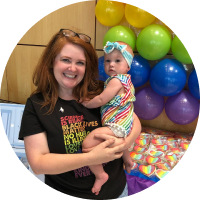8 Things to Consider for Your Holiday Unit
Happy December! I wanted to stop by and share some of my learning over the past few years about your Holiday unit. It’s such a fun unit and topic and I know kids look forward to it everywhere. There are a few things we can do to tweak our language/resources to make sure we’re respecting each culture, religion and family.
Call it “Holidays We Celebrate” or “Holidays” as often as you call it “Holidays Around the World.” A lot of holidays did originate other places so in a lot of ways “Holidays Around the World” is a great description. But we want to make sure that we’re reminding students that these holidays are celebrated in America…right here in our communities. Students can have a misconception that Diwali is celebrated in India or Hanukkah in Israel but they are celebrated here as well.
Don’t say they are the _____ version of Christmas. I’ve heard Hanukkah called the “Jewish version of Christmas” quite a bit and maybe even said that myself. But every culture and religion has their own special holiday and they’re not just a version. I think it’s a great idea to compare/contrast the holidays so that students can find similarities and differences. But, we want to make sure that we aren’t comparing “other” to the “mainstream,” but focusing on 2 holidays that are equally important and special.
Remember and discuss that Hanukkah is not the most important Jewish holiday. There are so many other celebrations that are special to people. For Jews, they celebrate the High Holidays. Most people consider these even more sacred and “important” thank Hanukkah. There are a lot of similarities, and often the calendar lines up, but its a great thing to remind your students.
Discuss and celebrate holidays as they come. During my first several years of teaching, we talked about holidays between Thanksgiving and Christmas and that was it. Instead, I encourage you to discuss holidays as they come. Most districts have this unit taking place around Winter Break, but you can still bring them up, do read-alouds, and ask for families to share their traditions while they happen.
It’s okay to discuss religious origins. Many major holidays are celebrated for religious reasons. In Islam, Ramadan is a time to fast and focus on sacrifice and self-restraint. Most families choose to attend mosque or spend more time in prayer or reading the Qur’an. In the same way, Rosh Hashahan and other High Holiday Days are a time for Jewish families to remember their history and often attend synagogue. It’s absolutely okay to discuss how Christmas had religious origins. The important thing is that we remind students that people celebrate holidays for a different reasons and they all matter.
Ask for authentic voices to share during your lessons. I did a great job explaining Christmas because I celebrate it. Often, though, our students only hear our voices discussing major holidays. It’s so powerful to ask community members to share how they celebrate. A video chat/Zoom is a great way to include them if you’re not comfortable bringing them into your classroom. Many schools have staff members that celebrate holidays besides Christmas and this is a great opportunity to lean on your coworkers. Here’s a few simple steps to do this.
- Send out a letter to families and ask if anyone has a special holiday they would like to share about. If no one responds, that’s okay! You know that you have given them the opportunity and some people just aren’t comfortable or you may have a more homogenous group of students and their families.
- Send out a quick note to coworkers and district officials and invite them to share a bit with your class.
- Reach out to local organizations and religious groups. Most communities have some sort of organization for Black community members, Jewish, Islamic, Hindu etc. It’s a great opportunity to include them in the conversation and they {probably} will be very knowledgable. If it’s not someone you know personally, I would just ask that they share about what they will present beforehand and lean on video chat. In-person visits are awesome, but not every teacher/admin would be comfortable so that’s a great way to make everyone comfortable.
Don’t ask students to share unless they volunteer. Even though we want to include authentic voices and experiences in our unit, it’s not our students’ responsibility. It can be really embarrassing for students if they’re called on without volunteering. For example, you might have a student that wears a Hijab and you know for sure that they celebrate Ramadan. Instead of calling on them during whole group, you might pull them over privately and ask if they’d like to share. Or ask for volunteers by saying something like “would anyone like to share about their experience with Kwanzaa.” If they choose not to participate that is TOTALLY okay and we should honor that.
Be mindful of student trauma and family situations. A lot of students don’t have great memories of the holidays. Or they may long to spend holidays with family that’s far away (due to incarceration, divorce, family separation, etc.) We want to make sure we’re reminding students that we all have special traditions. It might be having a special breakfast or Saturdays or calling someone once a month. Show how your class has special traditions too…like a class celebration or birthday routine.
To help students connect with the content, here is a little writing sheet you can use to have students tell about a tradition they have. You can send it home with students to work on with their families or have students complete it in class. This allows you the opportunity to support those who don’t have great holiday memories with their families.

These are just a few ways to make our Holiday unit more inclusive and safe for all of our students. What other ideas do you have?
